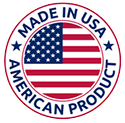At the writing of this post, Climate Clock tells us that we have 7 years and 248 days to achieve zero greenhouse gas emissions or face irreversible climate damage. That possibility took center stage at COP26, the UN Climate Change Conference recently held in Glasgow to accelerate action towards the goals of the Paris Agreement and the UN Framework Convention on Climate Change.
At COP26, nations agreed to begin eliminating subsidies on fossil fuels and phase down coal-fired power while some pledged to reduce methane emissions and end deforestation. These commitments and others will eventually translate into regulations and policies that in effect, become the “stick” that leads to greener methods of production and less environmental damage.
As businesses around the globe stare down rising costs in energy, materials and compliance, sustainable manufacturing actually has become the “carrot.” The pioneering experiences of businesses who have already embraced green growth have shown us that sustainable manufacturing goes hand-in-hand with profitability and competitive edge.
What is sustainable manufacturing?
While there’s no universally-accepted definition of sustainable manufacturing, the US Department of Commerce describes it as “the creation of manufactured products that use processes that minimize negative environmental impacts, conserve energy and natural resources, are safe for employees, communities and consumers and are economically sound.”
From an environmental perspective, sustainable manufacturing initiatives may include minimizing the use of hazardous substances, reducing waste and emissions, protecting biodiversity or using more environmentally-sound energy and materials.
Creating Value Through Sustainable Manufacturing
Doing business with a foundation built on good environmental practices is becoming more and more essential in the eyes of customers, regulators and investors. Evolving and innovating can bring substantial value to businesses large and small. Consider these effects that sustainable manufacturing can have on your bottom line and operational performance:
Financial Performance: Businesses who embrace green initiatives increase sales by meeting environmental expectations better than the competition. They boost productivity and efficiency by reducing resource waste and use, and they reduce dependence on hazardous or expensive materials by innovating, exploring and introducing greener alternatives.
Stronger Relationships with Stakeholders: Your green know-how can enhance your reputation, improve employee morale and retention and build better relationships with your community by exemplifying a proactive, responsible approach to your local environment and people.
Achieving Business Excellence: When sustainable manufacturing is the carrot, not the stick, you can cement yourself as a proactive industry leader shaping best practices. Your embrace of innovative solutions can help you win access to capital and gain strategic foresight to further innovate solutions and add value.

Sustainable Manufacturing Starts with Material Choices
No matter what products you make, your business uses resources from the natural environment and discharges wastes and emissions into the environment. Often, the materials you use have the greatest environmental impact, from the way they are sourced or created to the way they breakdown upon disposal.
With our hemp biocomposites and bioplastics, we invite you to reimagine what manufacturing can look like. We’ve made the sustainability shift more accessible — our hemp plastics can replace conventional plastics without significant additional capital or operating expense. We’ve also made it more impactful — switching to hemp plastics today can create an immediate and significant reduction in plastic.
These innovations have reduced plastic pollution and greenhouse gas emissions to a choice. Companies in every industry can play a decisive role in accelerating climate action, and together we can solve the plastic problem. We’re here to answer all of your questions and guide you through the process to achieving more sustainable manufacturing. Please give us a call today at 888-608-8472 or 720-548-6325 to start the conversation and request your free sample.

